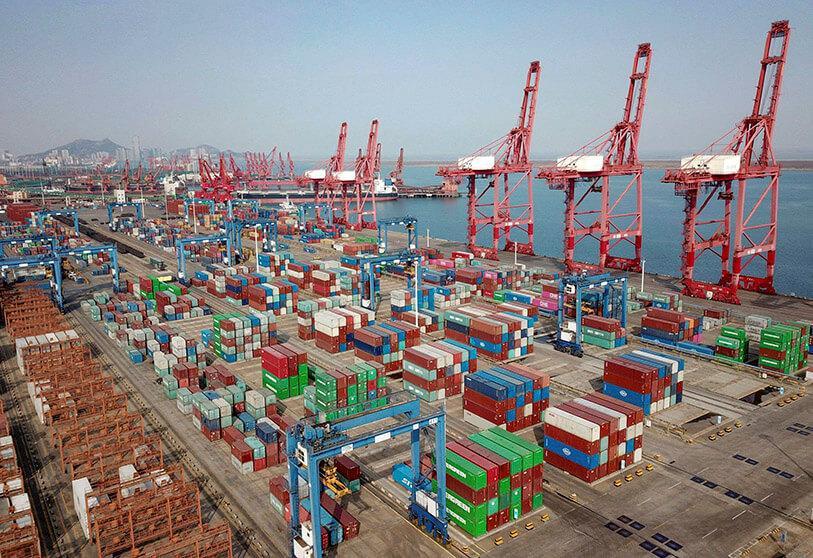China's imports contracted sharply in April, while exports rose at a slower pace, reinforcing signs of feeble domestic demand despite the lifting of COVID curbs and heaping pressure on an economy already struggling in the face of cooling global growth.
China's economy grew faster than expected in the first quarter thanks to robust services consumption, but factory output has lagged and the latest trade numbers point to a long road to regaining the pre-pandemic momentum at home.
Inbound shipments to the world's second-largest economy fell 7.9% year on year in April, extending the 1.4% decline seen a month earlier, while exports grew 8.5%, easing from the 14.8% surge in March, customs data showed on Tuesday.
Economists in a Reuters poll had predicted no growth in imports and an 8.0% increase in exports.
"At the beginning of this year, one would assume that imports will easily surpass 2022 levels following the reopening, but that hasn't been the case," said Xu Tianchen, an economist at the Economist Intelligence Unit.
"While China's post-COVID rebound has been swift and sharp, it has been largely self-contained and not felt by the rest of the world," he added.
Government officials have repeatedly warned of a "severe" and "complicated" external environment in the wake of mounting recession risks for many of China's key trading partners.
The sharp deterioration in last month's trade flows will only renew worries about the state of external demand and risks posed to the domestic economy, especially given the frail recovery from a year earlier when inbound and outbound shipments were severely disrupted by China's COVID-19 restrictions.
"Given the gloomy outlook for external demand, we think exports will decline further before bottoming out later this year," said Zichun Huang, China economist at Capital Economics in a note.
The data appeared to push Hong Kong and mainland Chinese stocks lower, although global factors were also at play. Hong Kong's Hang Seng Index was down 1.11% in the early afternoon while China's blue chip CSI300 Index was 0.26% weaker, after climbing 0.5% before the lunch break.










